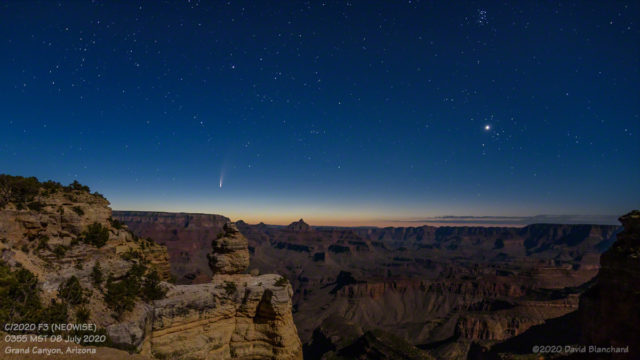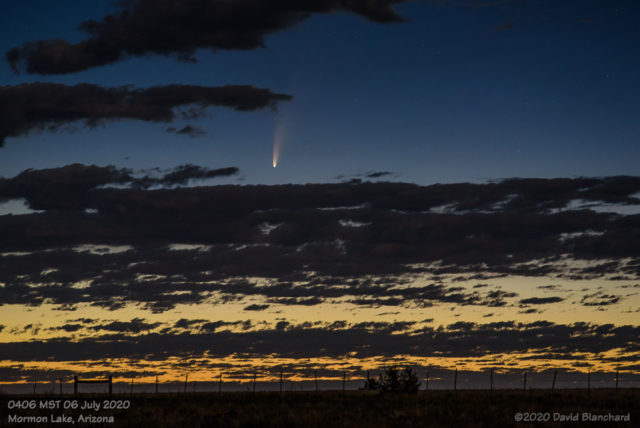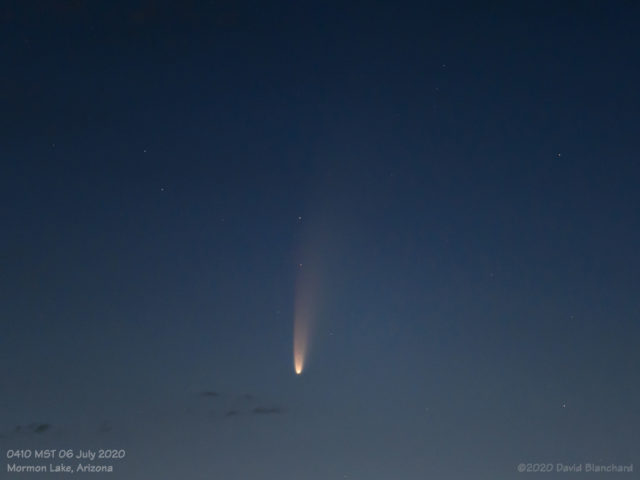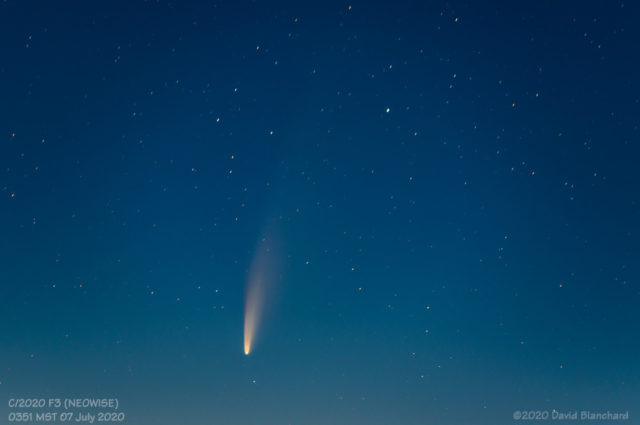The comet is now visible in the evening sky but also remains visible in the morning sky. Evening twilight is bright enough to make it difficult to see the comet without binoculars or long exposures on a camera. That will change quickly as the comet moves higher in the northwestern sky in the coming days and weeks.
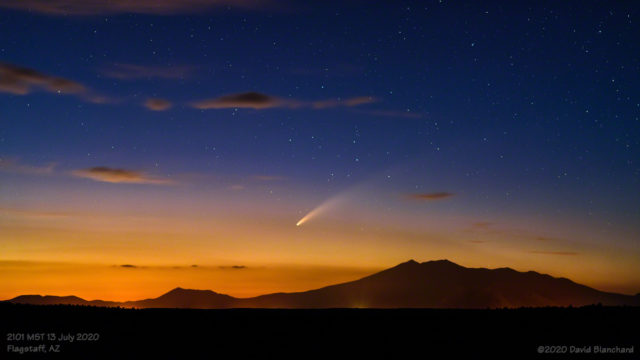
Above is an image of the comet in the evening sky. Layers of clouds and moisture threatened to interfere but actually made the photograph more interesting with saturated twilight colors.
This image is a stack of ten images each 4 secs exposure at ISO 1600, ƒ/1.8, and 85mm focal length. The individual images were stacked using Starry Landscape Stacker.
